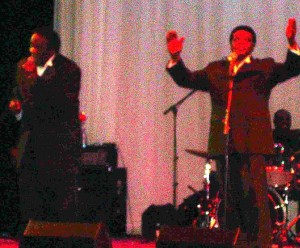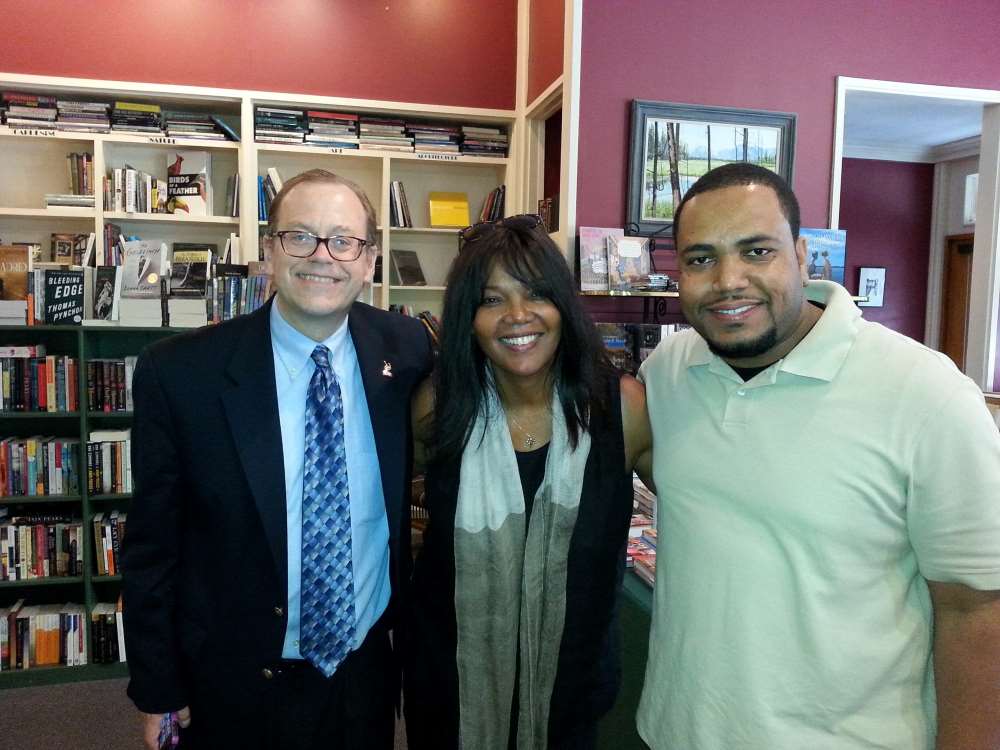
They sang on the stage of Chicago’s venerable roots music venue, The Old Town School of Folk Music.
It made sense: both the “Jubes” and the Old Town School are Chicago institutions and national treasures. Both have been around a long while: the Old Town School for fifty years and the Jubes since 1944. And brothers Cleave and Clay Graham, who were the spiritual foci of Wednesday’s show, have been with the Jubes since the mid ‘40s and the early ‘50s, respectively.
Despite a history of recording for Southern-based record labels such as Peacock, Nashboro and now Malaco, the Jubes are a Chicago-based quartet and have been since the Graham family migrated from Mississippi to Chicago in the early 1950s.
Known originally as the Pilgrim Jubilee Singers, the quartet soared to national prominence in 1959 by turning lemons into lemonade. When their bass singer failed to appear for an important recording session at Chicago’s Universal Studios, legendary Willie Dixon was called to service, playing stand-up bass. Dixon’s driving bass lines, coupled with the Jubes’ urgent vocals, turned “Stretch Out” into a major hit and changed gospel quartet singing forever. Suddenly the bass guitar – and eventually the electric bass – replaced the thumping bass singer in quartets from coast to coast.
But a half-century has passed since then, and a number of original members of the Jubes have gone on. Another longtime member, Major Roberson, is struggling with illness and not able to perform regularly. “It’s just Cleave and Clay, Clay and Cleave,” Cleave Graham told the Old Town School crowd ruefully.
Cleave and Clay then proceeded to play off one another like a saved and sanctified version of Memphis superstars Sam and Dave, delivering soulful and mellow harmonies on quartet numbers from their vast repertory, and launching into an extended version of “Hold On,” a take-the-house number that brought the audience to its feet, clapping and dancing gleefully in place.
The Jubes are adding theater venues to their schedule of singing in churches, festivals and traditional quartet cavalcades to attract a more diverse audience. It has worked beautifully for their comrades the Dixie Hummingbirds, the Fairfield Four and the Blind Boys of Alabama. If the crowd yesterday has anything to say about it, the Jubes are on their way.
Written by : Bob Marovich
Bob Marovich is a gospel music historian, author, and radio host. Founder of Journal of Gospel Music blog (formally The Black Gospel Blog) and producer of the Gospel Memories Radio Show.












 Visit Today : 10
Visit Today : 10 This Month : 166
This Month : 166